Key Takeaways
1. The Walking Dead Explores Humanity Through Philosophical Zombies
"Zombies are obviously linked strongly to the dominant fears of their era."
Philosophical Exploration of Humanity. The Walking Dead uses zombies as a philosophical lens to examine deep questions about human nature, consciousness, and moral identity. Unlike traditional horror narratives, the series transforms zombies from mere monsters into complex philosophical thought experiments that challenge our understanding of what it means to be human.
Zombies as Philosophical Constructs. The walkers in the series serve multiple philosophical purposes:
- Challenging concepts of consciousness
- Exploring the boundaries of human identity
- Revealing the fragility of social structures
- Examining moral decision-making in extreme circumstances
Beyond Simple Horror. The zombie narrative becomes a sophisticated philosophical inquiry into human nature, using the apocalyptic setting to strip away societal conventions and expose fundamental questions about existence, morality, and individual agency.
2. Existentialism Reveals the Nature of Human Freedom in Crisis
"Existence precedes essence. Human beings are alone in the universe, without God or Truth."
Freedom in Apocalyptic Context. Existentialism emerges as a critical philosophical framework for understanding human behavior in the zombie apocalypse. The breakdown of social structures forces characters to create meaning through their individual choices, demonstrating the core existentialist principle that humans define themselves through action.
Key Existential Themes:
- Radical personal responsibility
- Creating meaning in a meaningless world
- Rejecting predetermined identities
- Embracing individual choice
- Confronting absolute freedom
Transformative Personal Agency. Characters like Rick Grimes exemplify the existentialist hero, continuously recreating themselves through conscious choices in a world stripped of traditional meaning and support structures.
3. Moral Philosophy Challenges Our Understanding of Personhood
"Consciousness poisons the experience."
Redefinition of Personhood. The zombie narrative provides a unique philosophical playground for examining what constitutes personhood, challenging traditional definitions based on rationality, consciousness, and moral agency. Philosophers in the book explore multiple perspectives on whether zombies retain any moral status.
Philosophical Perspectives on Zombies:
- Biological continuity
- Consciousness as a defining characteristic
- Moral status beyond human recognition
- Capacity for reasoning and self-awareness
- Ethical treatment of non-human entities
Complex Moral Terrain. The book demonstrates how philosophical inquiry can transform seemingly simple monster narratives into nuanced explorations of human and non-human identity.
4. The Apocalypse Strips Away Societal Illusions
"When the walls of civilization fall, our true nature is revealed."
Societal Deconstruction. The zombie apocalypse serves as a philosophical mechanism for revealing the fragile constructs of social order, exposing how quickly established norms can collapse when survival becomes the primary imperative. This breakdown creates a laboratory for examining human behavior in its most fundamental state.
Revealed Social Dynamics:
- Breakdown of legal and moral frameworks
- Emergence of primal survival instincts
- Reconstruction of social hierarchies
- Exposure of underlying human motivations
- Elimination of superficial social distinctions
Philosophical Laboratory. The apocalyptic setting becomes a thought experiment for understanding human nature beyond societal constraints.
5. Zombies Represent the Horror of Losing Human Identity
"There is no humanity in the eyes of the dead that walk."
Existential Terror. Zombies embody the philosophical fear of losing individual identity, representing a state of existence devoid of consciousness, personal agency, and meaningful choice. They become metaphorical representations of dehumanization and loss of essential self.
Dimensions of Identity Loss:
- Elimination of consciousness
- Destruction of personal memory
- Reduction to base biological impulses
- Loss of rational decision-making
- Transformation into pure instinctual being
Metaphysical Nightmare. Zombies symbolize the ultimate philosophical horror: a state of existence without meaningful awareness or individual essence.
6. Survival Requires Reimagining Ethical Frameworks
"In a world ruled by the dead, we are forced to finally start living."
Ethical Reconstruction. The zombie apocalypse demands a radical reevaluation of moral systems, forcing characters to develop new ethical frameworks that prioritize survival while maintaining fundamental human values. This process involves creating meaning through conscious choice and collective survival.
Ethical Adaptation Strategies:
- Rejecting outdated moral constraints
- Developing situational ethics
- Balancing individual and group survival
- Maintaining core human values
- Creating new social contracts
Moral Evolution. Survival becomes a process of continuous ethical negotiation and reconstruction.
7. Technology and Modernity Create Existential Fears
"Humans seem to have a vague but growing fear that the truth and our fates are controlled by forces beyond our reach."
Technological Alienation. Modern technological society generates profound existential anxieties about human agency, identity, and control. The zombie narrative serves as a metaphor for these deeper fears about technological displacement and loss of individual meaning.
Modern Existential Challenges:
- Technological dehumanization
- Loss of personal agency
- Alienation from authentic experience
- Erosion of individual identity
- Mechanization of human existence
Philosophical Critique. The zombie narrative becomes a powerful commentary on contemporary technological and social conditions.
8. The Zombie Apocalypse Exposes Fundamental Moral Dilemmas
"Moral values stem from cultural evolution and society's needs."
Ethical Boundary Testing. The extreme circumstances of the zombie apocalypse create a philosophical pressure cooker for examining fundamental moral principles, revealing the complex negotiations between individual survival and collective moral standards.
Moral Dilemma Dimensions:
- Survival versus ethical consistency
- Individual versus collective needs
- Preservation of humanity under extreme conditions
- Moral flexibility in crisis
- Ethical decision-making without institutional support
Moral Laboratory. The apocalyptic scenario becomes a sophisticated philosophical experiment in ethical reasoning.
9. Individual Choice Defines Humanity in Extreme Circumstances
"Each human creates himself or herself by choosing his or her own moral code."
Radical Personal Responsibility. In the absence of established social structures, individual choice becomes the primary mechanism for maintaining human essence. Characters demonstrate humanity through conscious, intentional decision-making that transcends mere survival.
Choice as Identity:
- Rejecting deterministic thinking
- Creating meaning through action
- Maintaining moral agency
- Resisting dehumanization
- Continuous self-creation
Existential Heroism. Individual characters become philosophical actors continuously defining themselves through deliberate choices.
10. Zombie Narratives Reflect Contemporary Social Anxieties
"Zombies rise from their crypt as us: always hungry, never sated, and having lost all sense of what it means to be human."
Cultural Metaphor. Zombie narratives function as sophisticated philosophical allegories for contemporary social fears, representing deeper anxieties about technological alienation, loss of individual meaning, and societal breakdown.
Underlying Social Fears:
- Technological dehumanization
- Loss of individual agency
- Erosion of social connections
- Consumerist emptiness
- Existential meaninglessness
Philosophical Reflection. Zombie narratives become complex philosophical mirrors reflecting contemporary social conditions.
Last updated:
FAQ
1. What’s "The Walking Dead and Philosophy: Zombie Apocalypse Now" by Wayne Yuen about?
- Philosophy Meets Pop Culture: The book explores philosophical questions and ethical dilemmas through the lens of the popular TV series and comic, "The Walking Dead."
- Zombie Apocalypse as Metaphor: It uses the zombie apocalypse as a backdrop to examine human nature, morality, and society.
- Accessible Philosophy: The essays are written to make complex philosophical ideas accessible to fans of the show and newcomers to philosophy alike.
- Wide Range of Topics: Topics include ethics, personal identity, leadership, and the meaning of life in a world overrun by zombies.
2. Why should I read "The Walking Dead and Philosophy: Zombie Apocalypse Now" by Wayne Yuen?
- Engaging Introduction to Philosophy: The book makes philosophy relatable by connecting it to a popular cultural phenomenon.
- Deepens Understanding of the Show: It offers new perspectives on characters and storylines, enriching the viewing experience.
- Thought-Provoking Questions: Readers are encouraged to reflect on their own values and beliefs in extreme situations.
- Diverse Contributors: Multiple philosophers contribute essays, providing a variety of viewpoints and interpretations.
3. What are the key takeaways from "The Walking Dead and Philosophy: Zombie Apocalypse Now"?
- Ethics in Crisis: The book highlights how moral choices become more complex in life-and-death situations.
- Human Nature Explored: It examines what it means to be human when civilization collapses.
- Leadership and Authority: The essays discuss the challenges of leadership and the legitimacy of power in a lawless world.
- Survival vs. Humanity: The tension between surviving at any cost and maintaining one’s humanity is a central theme.
4. How does Wayne Yuen use "The Walking Dead" to explore philosophical concepts?
- Case Studies from the Show: Specific episodes and character arcs are analyzed to illustrate philosophical dilemmas.
- Classic Philosophers Referenced: The book draws on thinkers like Hobbes, Kant, and Nietzsche to frame discussions.
- Moral Dilemmas Highlighted: Scenarios such as killing for survival or sacrificing one for the many are examined in depth.
- Identity and Personhood: The transformation of characters and the nature of zombies themselves are used to question what makes someone a person.
5. What ethical dilemmas are discussed in "The Walking Dead and Philosophy: Zombie Apocalypse Now"?
- Killing and Mercy: The morality of killing both zombies and humans is debated, including mercy killings.
- Group Loyalty vs. Outsiders: The ethics of protecting one’s group at the expense of others is explored.
- Resource Allocation: Decisions about who gets scarce resources are analyzed from utilitarian and deontological perspectives.
- Ends Justify the Means?: The book questions whether survival justifies morally questionable actions.
6. How does "The Walking Dead and Philosophy: Zombie Apocalypse Now" address the concept of personal identity?
- Continuity of Self: The book discusses whether survivors remain the same people after traumatic experiences.
- Zombies and Personhood: It questions if zombies retain any aspect of their former identity or moral status.
- Memory and Identity: The role of memory in maintaining personal identity is explored through character transformations.
- Moral Responsibility: The loss of self in zombies raises questions about moral responsibility and agency.
7. What does Wayne Yuen say about leadership and authority in a post-apocalyptic world?
- Legitimacy of Power: The book examines what makes a leader legitimate when traditional structures collapse.
- Types of Leadership: Different leadership styles, such as Rick’s democracy vs. the Governor’s tyranny, are compared.
- Moral Burdens: The ethical weight of making life-and-death decisions for a group is discussed.
- Social Contracts: The formation of new social contracts and rules in the absence of government is analyzed.
8. How does "The Walking Dead and Philosophy: Zombie Apocalypse Now" explore the tension between survival and morality?
- Survival Instincts: The book looks at how the drive to survive can conflict with moral principles.
- Moral Compromises: Characters are often forced to compromise their values to stay alive.
- Redefining Right and Wrong: The collapse of society leads to new definitions of what is acceptable behavior.
- Consequences of Choices: The long-term effects of moral decisions on individuals and groups are considered.
9. What philosophical theories and thinkers are referenced in "The Walking Dead and Philosophy: Zombie Apocalypse Now"?
- Thomas Hobbes: The state of nature and the need for social contracts are discussed in relation to the show’s chaos.
- Immanuel Kant: Kantian ethics, such as treating people as ends in themselves, are applied to survivor interactions.
- Utilitarianism: The greatest good for the greatest number is debated in resource allocation and group decisions.
- Nietzsche and Existentialism: The search for meaning in a meaningless world is a recurring theme.
10. How does "The Walking Dead and Philosophy: Zombie Apocalypse Now" define humanity in the context of a zombie apocalypse?
- Humanity vs. Survival: The book questions whether maintaining one’s humanity is possible or even desirable in extreme conditions.
- Empathy and Compassion: Acts of kindness are contrasted with brutality, highlighting what makes us human.
- Dehumanization: The process by which survivors and zombies are dehumanized is explored.
- Moral Boundaries: The shifting boundaries of acceptable behavior challenge traditional notions of humanity.
11. What are the best quotes from "The Walking Dead and Philosophy: Zombie Apocalypse Now" and what do they mean?
- "In the end, we are all the walking dead." This quote reflects on the universality of mortality and the thin line between survivors and zombies.
- "Morality is a luxury in a world of scarcity." It suggests that ethical behavior becomes harder to maintain when resources are limited.
- "Leadership is not about power, but about responsibility." This highlights the ethical burdens leaders face in crisis.
- "To lose one’s humanity is to lose everything." The book emphasizes that survival without moral values is ultimately empty.
12. How can readers apply the philosophical insights from "The Walking Dead and Philosophy: Zombie Apocalypse Now" to real life?
- Ethical Decision-Making: The book encourages readers to think critically about their own moral choices, even outside of extreme situations.
- Understanding Authority: Insights into leadership and power dynamics can be applied to workplaces and communities.
- Resilience and Identity: The exploration of personal identity and resilience is relevant to anyone facing hardship or change.
- Value of Community: The importance of social bonds and cooperation is underscored, reminding readers of the need for empathy and solidarity.
Review Summary
The Walking Dead and Philosophy receives mixed reviews, averaging 3.62 out of 5 stars. Readers appreciate its accessible approach to philosophy through the lens of the popular zombie series. Many find it engaging and thought-provoking, praising its exploration of moral dilemmas and philosophical concepts. However, some criticize repetitive content, editing errors, and occasional weak essays. The book covers both the TV show and comics, potentially spoiling content for some readers. Overall, fans of The Walking Dead generally enjoy the philosophical analysis, despite its flaws.
Popular Culture and Philosophy Series Series
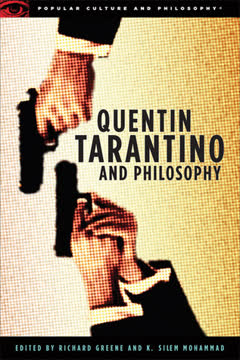
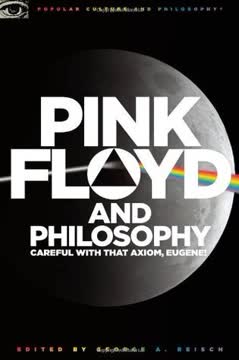
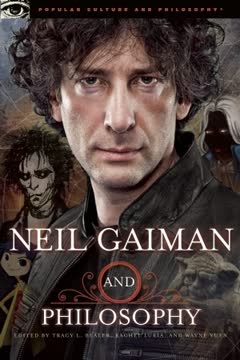
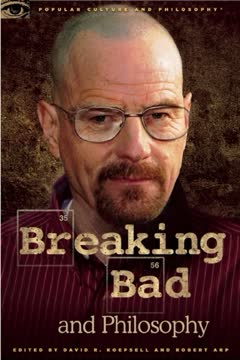
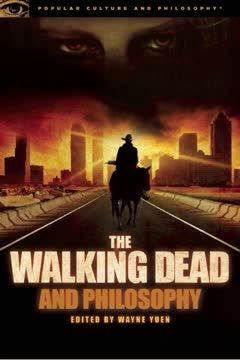
Download PDF
Download EPUB
.epub digital book format is ideal for reading ebooks on phones, tablets, and e-readers.




